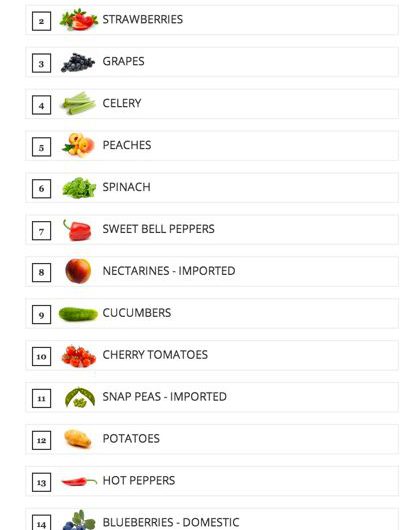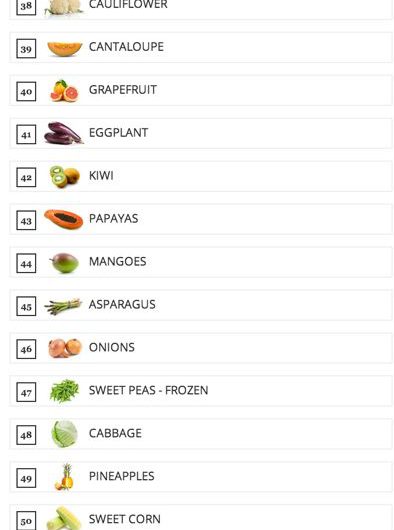Apples, Celery, Strawberries, Potatoes, Blueberries, Kale. What do these foods have in common besides being produce? They’re some of the new dirty dozen according to the 2014 USDA report.
Highlights of Dirty Dozen™ 2014 EWG’s Dirty Dozen™ list of produce includes apples, strawberries, grapes, celery, peaches, spinach, sweet bell peppers, imported nectarines, cucumbers, cherry tomatoes, imported snap peas and potatoes. Each of these foods contained a number of different pesticide residues and showed high concentrations of pesticides relative to other produce items. In particular:
- Every sample of imported nectarines and 99 percent of apple samples tested positive for at least one pesticide residue.
- The average potato had more pesticides by weight than any other food.
- A single grape sample contained 15 pesticides. Single samples of celery, cherry tomatoes, imported snap peas and strawberries showed 13 different pesticides a piece.
The Clean Fifteen™
EWG’s Clean Fifteen™ for 2014 – the produce least likely to hold pesticide residues – are avocados, sweet corn, pineapples, cabbage, frozen sweet peas, onions, asparagus, mangoes, papayas, kiwis, eggplant, grapefruit, cantaloupe, cauliflower and sweet potatoes. Relatively few pesticides were detected on these foods, and tests found low total concentrations of pesticides. Notable findings:
- Avocados were the cleanest: only 1 percent of avocado samples showed any detectable pesticides.
- Some 89 percent of pineapples, 82 percent of kiwi, 80 percent of papayas, 88 percent of mango and 61 percent of cantaloupe had no residues.
- No single fruit sample from the Clean Fifteen™ tested positive for more than 4 types of pesticides.
- Detecting multiple pesticide residues is extremely rare on Clean Fifteen™ vegetables. Only 5.5 percent of Clean Fifteen samples had two or more pesticides.
 http://www.ewg.org/foodnews/summary.php
http://www.ewg.org/foodnews/summary.php








